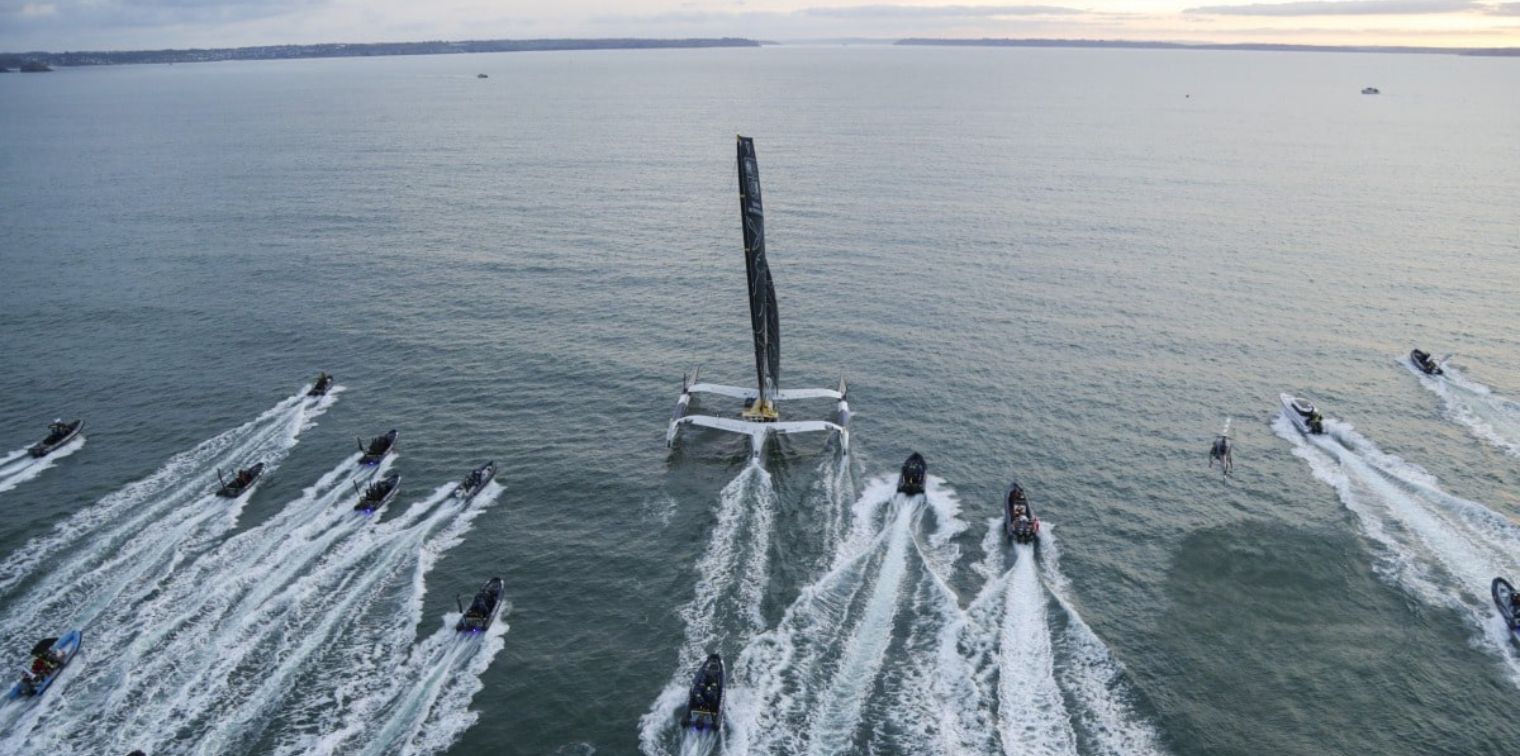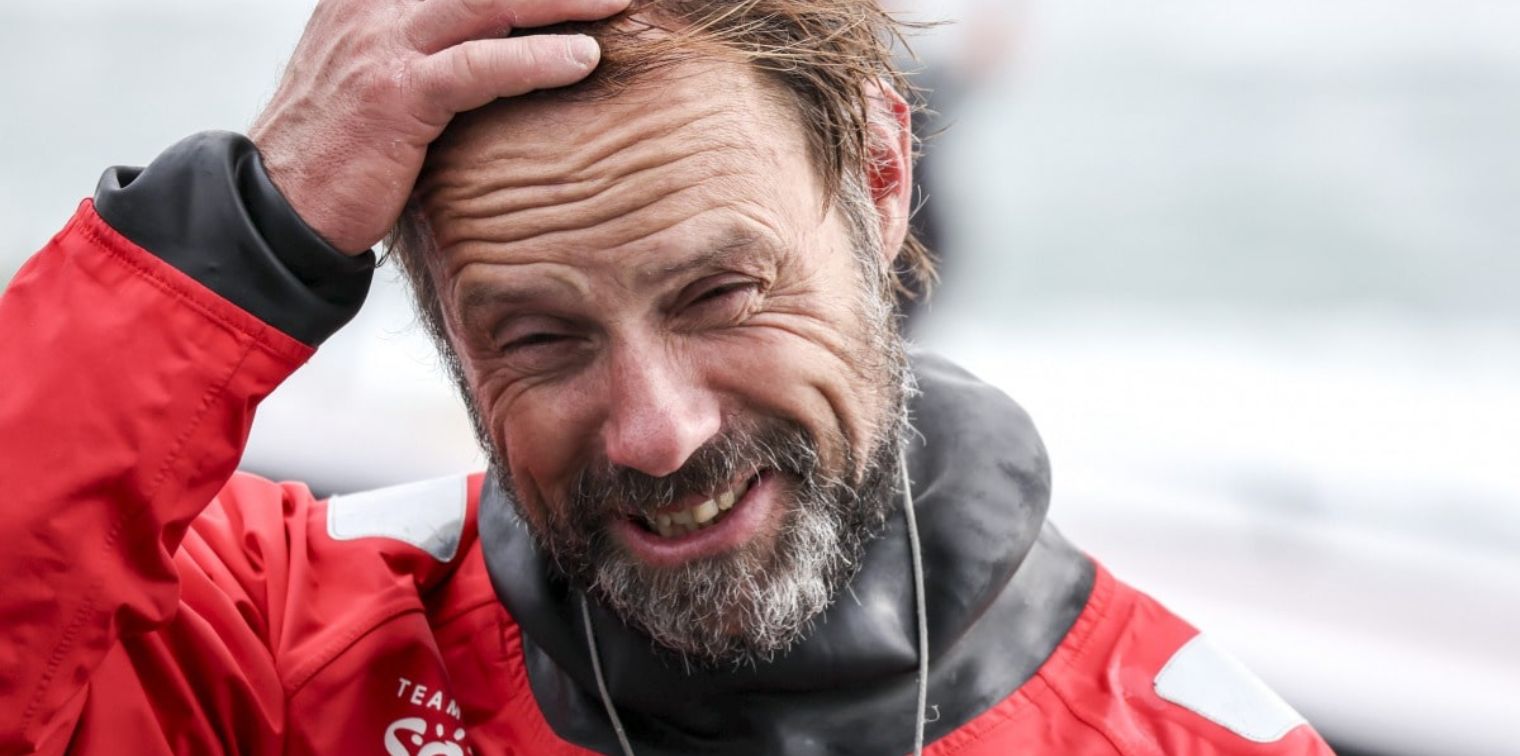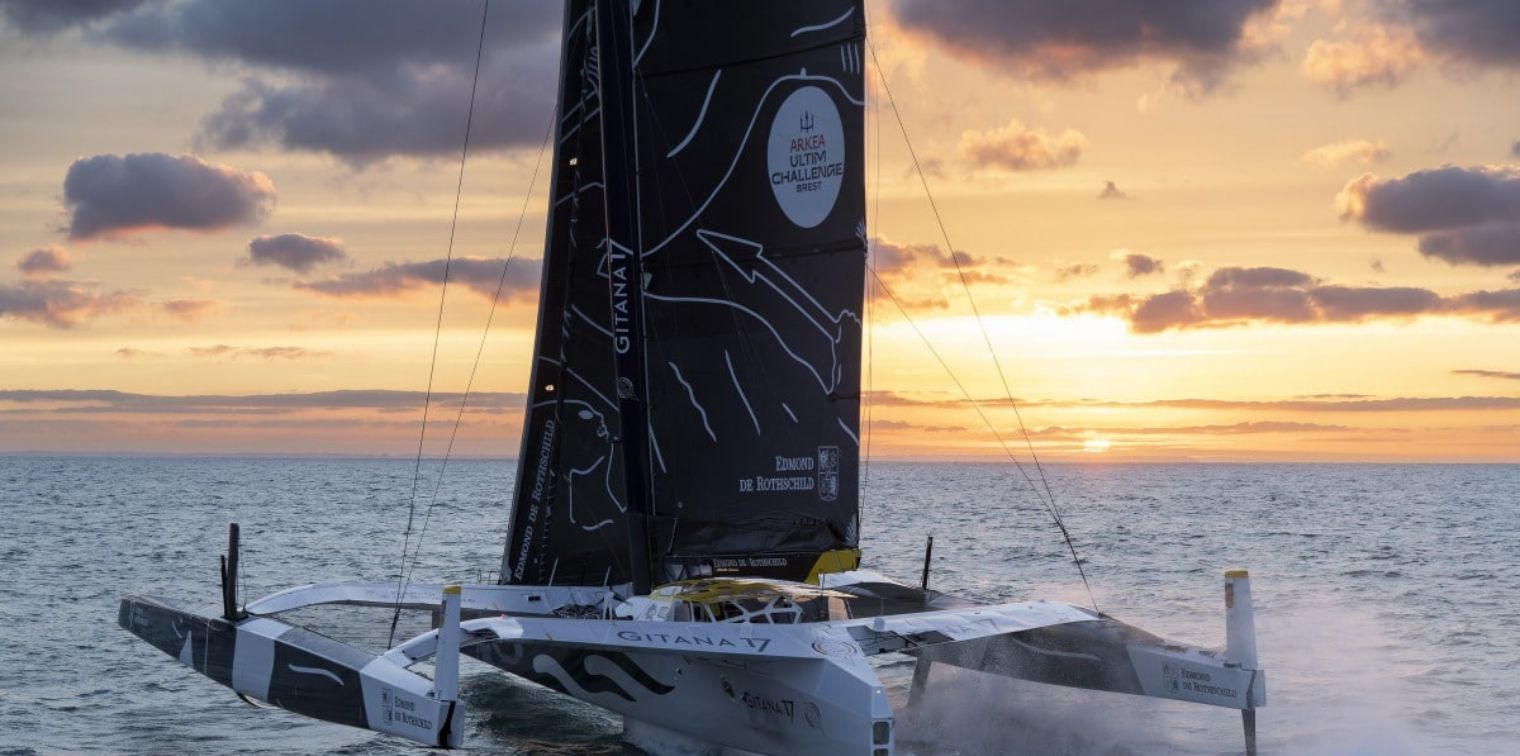NEWSLETTER #7 | ARKEA ULTIM CHALLENGE - BREST
16/04/2024
A First and promises
This unique challenge, never achieved before, concluded on March 13th with the arrival of Éric Péron. For the first time in history, skippers competed solo and in multihulls around the world. This sets a precedent and sparks enthusiasm for the future.

In the span of 15 days, from February 27th to March 13th, the outcome of the ARKÉA ULTIM CHALLENGE-Brest was known. Within this timeframe, five sailors crossed the finish line, from the grand winner Charles Caudrelier (Maxi Edmond de Rothschild) to Éric Péron (ULTIM ADAGIO, 5th place). The images of majestic arrivals in the early morning for Charles Caudrelier, in the afternoon for Thomas Coville (2nd), Anthony Marchand (4th), and Éric Péron (5th), and in the evening for Armel Le Cléac’h (3rd), left a lasting impression because they alone remind us of the immense challenge these men have just accomplished.
No one had ever raced solo and in multihulls around the world before. So, it is still possible to write the history of offshore racing, to be pioneers, to go a little further than what already exists. The commitment of partners – Arkéa leading the way – of local authorities, and a dedicated organizer contributed to turning this dream often talked about on the pontoons into a reality.
The incredible battle of the early days
At the start, even the sailors were cautious about the ability to make it to the end, about the unknowns in the required commitment. Yet, they did a bit more than just make it. Even though they all made stops – the rules allowed for minimum 24-hour stops – five out of six competitors completed the race, demonstrating the reliability and solidity of these boats. Moreover, the only withdrawal – Tom Laperche (SVR Lazartigue) – was not due to a structural or reliability issue but rather a collision with an unidentified floating object.
Furthermore, the Ultim skippers demonstrated an incredible ability to hold their ground. Those who had all honed their skills in the Figaro seemed to give the same commitment, the same intensity, especially at the beginning of the race. Seasoned observers and spectators alike were all captivated by the first days of the race, by each one's ability to push the limits at astonishing speeds. Fought among flying boats, this battle then focused on a duel between Tom Laperche and Charles Caudrelier in the South Atlantic, who exchanged leads until the young skipper's misfortune.
The speed capabilities of these boats quickly created particularly substantial gaps. After breaking the record in the Indian Ocean, Charles Caudrelier briefly flirted with François Gabart's round-the-world record (42 days, 16 hours) before weather conditions intervened. Nonetheless, this first edition hints at some serious prospects for the future. Teams will continue to develop and enhance these boats. There will be one more as Gitana has announced the construction of a new boat for 2028. The story is therefore unfolding, with a new chapter planned in four years.
Back to reality

After the excitement of the arrival, the frenzy of the first days on land, it was necessary to manage the fatigue, find one's bearings, take the time to readjust to everything. And because these sailors are athletes and competitors, they quickly found a new challenge to face the future with determination.
An environment without noise and without movement. Without appendages whistling, without wind snapping, without chop, without waves, without alarms ringing, without constantly thinking about their boat. Waking up without having to worry about maneuvers to perform or choices to make. Thus, the sailors of the ARKÉA ULTIM CHALLENGE-Brest had to readapt to land. Charles Caudrelier was fortunate to have a little over 72 hours in the Azores to take showers, get some sleep and strength before finishing. After his arrival and a 'media tour' in Paris, the skipper left with his family to Guadeloupe to recharge his batteries, with his children. 'The idea of vacation is to go on the water. I miss the sea quickly when I'm away.'
'The feeling of having one foot on land, the other at sea'
Armel Le Cléac'h, on the other hand, went skiing in the Alps with his family to recharge his batteries... The day after his arrival. 'I waited a bit before hitting the slopes, I had a lot of sleep to catch up on,' he confides. Thomas Coville spent the following days at home after his arrival. 'In the first days, you still feel like you have one foot on land and one foot at sea,' he assures. 'We focus on recovering slowly while enjoying time with loved ones.'
Because they are all competitors, these sailors need to set new challenges for themselves, to look ahead. At SVR-Lazartigue, the boat arrived at the yard on Wednesday, March 20th, after a long convoy, allowing the entire team to start repairs. Charles Caudrelier, for his part, explained 'looking forward to getting back to his routine.' With his team, they will begin work on constructing their new Ultim. In other teams, boats are being taken out and a shipyard phase is beginning, even though the horizon for the next races is distant, with two events in the fall and the prospect of the Jules Verne Trophy for several teams.
At Banque Populaire, there is a bit more activity. The blue and white multihull will indeed transport the Olympic Flame next June from the mainland to the Caribbean. Armel Le Cléac'h will be on board with personalities for this unique adventure. In a nod to history, it is from Brest that the Maxi Banque Populaire XI will set sail, the same place where all eyes were on at the end of the ARKÉA ULTIM CHALLENGE-Brest.

Managing solitude for months

Going alone on the ocean for ten weeks inevitably changes a skipper. Thomas Coville has a formula to summarize it: 'now, you know that I know that you know,' meaning that only those who have endured a round-the-world trip can truly understand the impact it can have. Certainly, Charles Caudrelier's race was almost a mirage: being able to manage his lead for much of the race, he rarely pushed himself 'into the red' except for a delicate climb up the South Atlantic. The hardships of others that force them to dig deep and eventually have an impact on nerves, fatigue, and solitude are sometimes felt. 'When it's tough, all you can think about is it ending, seeing your loved ones again, and being in peace,' confides Armel Le Cléac’h. Yet, they all showed tremendous dedication, despite the setbacks, stopovers, and stress of not being able to finish. Their experience in other races, on other platforms, was particularly valuable for enduring the tough times. Being in constant contact with the routing teams was invaluable as well, to avoid suffering too much from loneliness. 'Feeling this support, always, gives the impression of never being truly alone,' Charles Caudrelier confided upon his arrival.
The Sailor's Dictionary

1 - Bourlinguer: refers to a boat struggling in heavy seas and a sailor who sails a lot.
2 - Fardage: denotes the wind resistance of a boat or ship.
3 - Rudder: the surface of the rudder on which water pressure acts.
Thank you for following us!
A beginning of the year marked by giants. Weeks spent focusing on tracking the 'carto', studying weather files, getting passionate about this sports and adventure saga. Offshore racing enthusiasts have rediscovered the fever of major races, the excitement of departures, the inevitable projections, and the scenarios to establish. The ARKÉA ULTIM CHALLENGE-Brest has plunged the discipline into a new dimension by boldly affirming that it was possible to circumnavigate the globe solo and in multihulls. So, we have become accustomed to a round-the-world 'devoured' in about fifty days, to boats progressing at nearly 700 miles some days and switching from one weather system to another at breakneck speed. Through this newsletter, we wanted to make you live this adventure, to bring you closer to those who make it happen, to discover some of Arkéa's collaborators who also live the passion for sailing or sports. A way to promote a certain idea of self-transcendence and well-being, at sea as well as on land.
